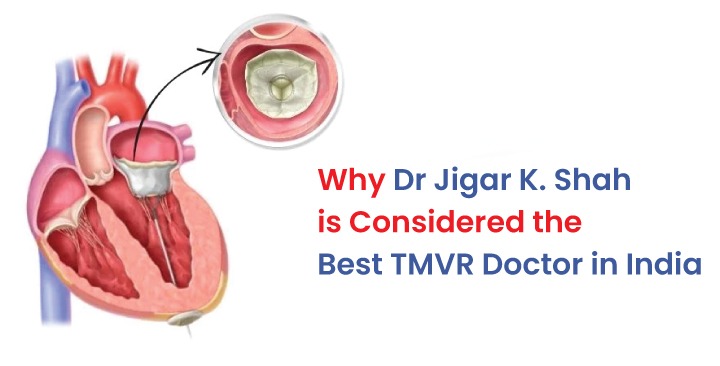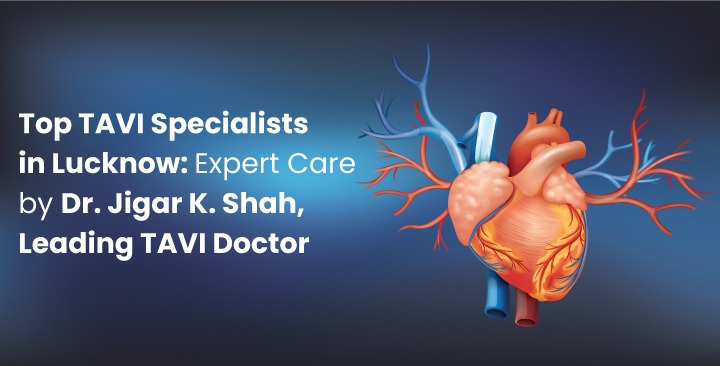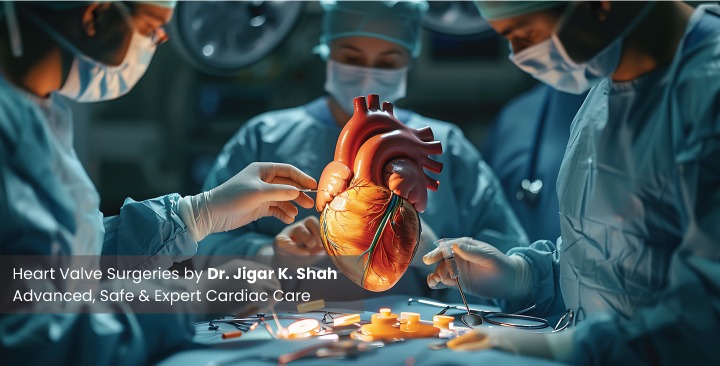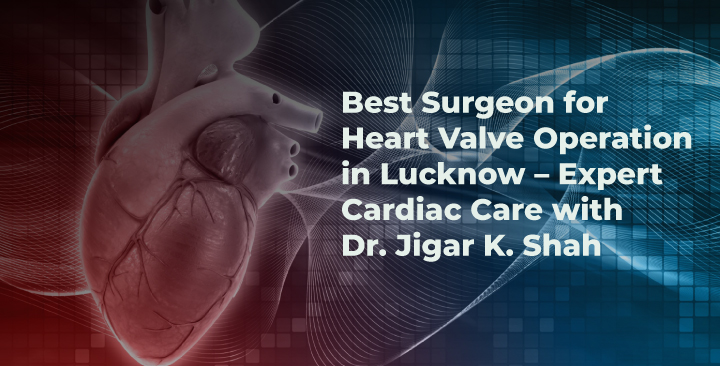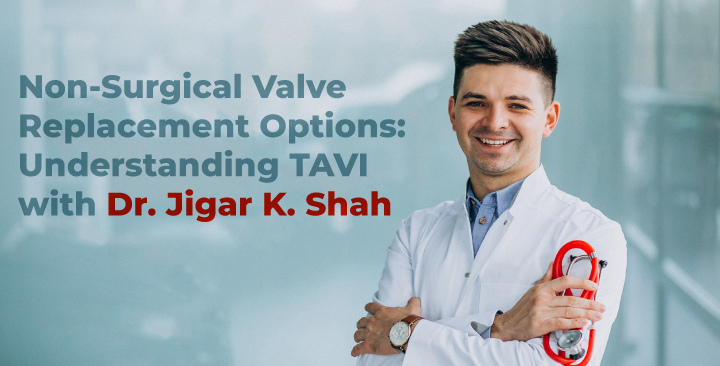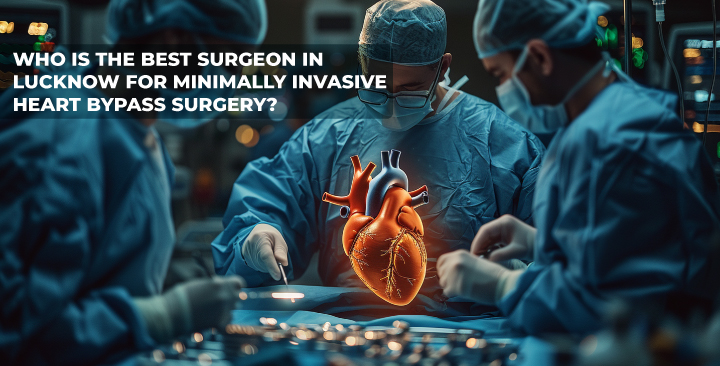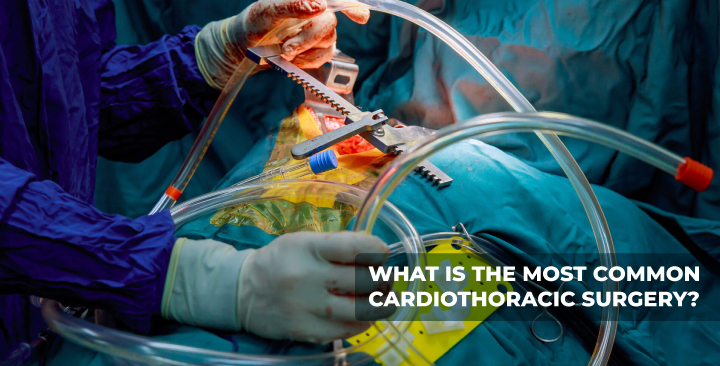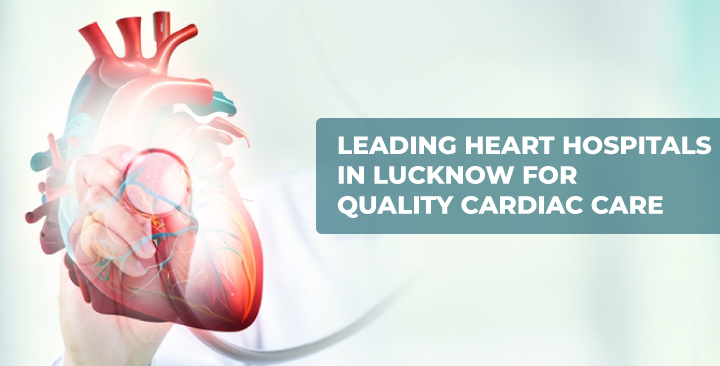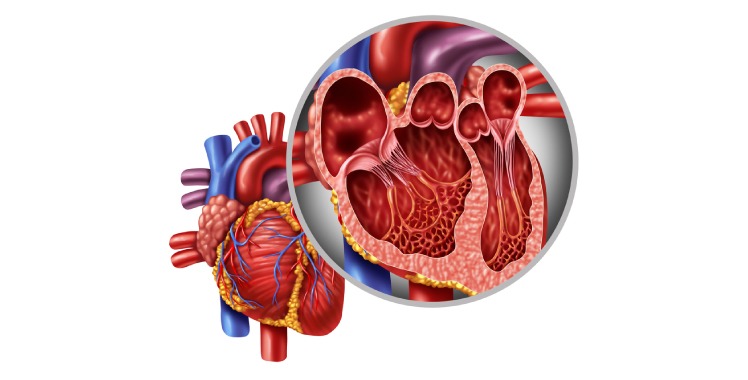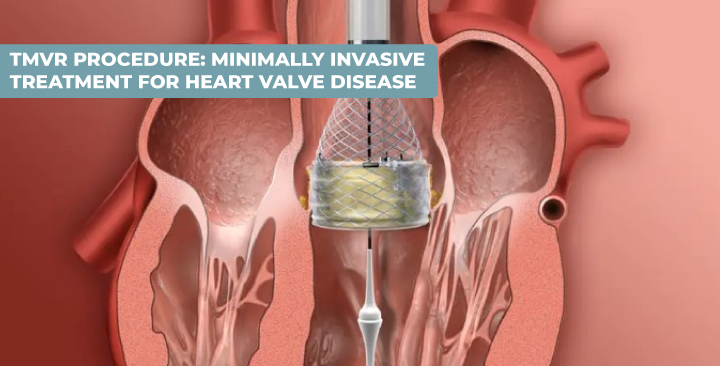
TMVR Procedure: Minimally Invasive Treatment for Heart Valve Disease
Dr. Jigar K. Shah07-May-2025
Heart disease continues to claim the lives of many people across the globe and mitral valve disease contributes significantly to heart disease. The good news is that new medical devices have brought revolutionary solutions that improve the quality of life without requiring open heart surgery. One of them is Transcatheter Mitral Valve Replacement (TMVR), which is a minimally invasive surgical procedure that conserves the natural anatomical structures of the heart. Dr. Jigar K. Shah, best cardiologist in Lucknow, explains the procedure and discusses its benefits for patients suffering from mitral valve disease.
Understanding Mitral Valve Disease
The mitral valve is one of the four predominant valves located in the heart. This valve allows blood to flow from the left atrium to the left ventricle. Stenosis(daynaring) or regurgitation (leakage) can lead to a disease state of this valve which stops the heart from functioning well and may make a person become extremely tired or short of breath to the extent that they may even reach heart failure.
In the past, issues with the mitral valve resulted in the need to perform open heart surgery to either repair or replace the valve, which could also be done manually. However, it was more effective but has higher risk associated with it, longer hospital stay and longer recovery time, especially for the elderly or patients at great risk.
What TMVR Stands For?
The Transcatheter Mitral Valve Replacement (TMVR) is a surgical heart procedure that involves replacing the mitral valve of a person’s heart without the necessity of an incision on the chest, stopping the heart or using a heart-lung machine. Instead, a thin and flexible tube, known as a catheter, is inserted through a small cut made on the patient’s groin or chest.
The catheter carries a new valve which is placed into the perturbed mitral valve. It can be seen on many medical-practitioner devices today. After placement, the valve is allowed to expand, and in most instances, it starts to control blood flow almost immediately.
Why Is TMVR Better?
Dr. Jigar K. Shah proposed that TMVR has some definitive benefits compared to more conventional surgical options:
- Lower Amount of Invasiveness: Risks caused by large chest cuts and the use of heart-lung machines are eliminated.
- Reduced Risk: The rate of complications is significantly lower than usual, especially for patients in an advanced age group.
- Shorter Recovery Period: Compared to other surgical options, most patients return to normal activities after a few days.
- Improved Quality of Life: Rapid relief and improved functionality of affected organs.
Thanks to these benefits, TMVR is believed to be the best solution for patients who want rapid-surgery alternatives.
Who Is a Candidate for TMVR?
Not every patient with mitral valve disease is eligible for TMVR. During the procedure is recommended for:
Patients with severe mitral regurgitation or stenosis and those requiring replacement surgery after prior mitral valve surgery. Peripheral artery disease patients who have an increased risk and are not fit for open heart surgery.
All patients need a thorough workup, which includes imaging and a multidisciplinary consultation with a ‘heart team’ before proceeding.
TMVR in Lucknow: Expertise You Can Trust
Dr. Jigar K. Shah is one of the most reputed cardiologists in Lucknow. He specializes in heart TMVR and other minimally invasive heart valve surgery, showcasing his vast experience. The latest technologies and meticulous attention to detail allow him to always put safety first and his patients at the center without compromise.
Dr. Jigar K. Shah has the expertise and best practices that ensure safety and success. If you or your family suffers from mitral valve disease, then this may be the procedure you have been searching for.
Most Asked Questions:
1.What is TMVR?
Transcatheter Mitral Valve Replacement (TMVR) is a procedure performed in patients with severe mitral valve problems. It does not require open-heart surgery.
2.Who is eligible for TMVR?
Patients who are severely affected with mitral valve disease are medically evaluated for TMVR. These patients are generally at a higher surgical risk or who have undergone several other surgeries on the valves.
3.How is TMVR different from open heart surgery?
TMVR is much less invasive than open-heart surgery, as there are no large cuts made to the chest. Instead, mitral valve replacement surgery is done through smaller openings, leading to faster recovery.
4.Is TMVR available in Lucknow?
In Lucknow, TMVR procedures are done by Dr. Jigar K. Shah, who is a specialist in minimally invasive heart surgeries.
5.What is the recovery time after TMVR?
Patients who undergo TMVR typically take around a week to recover fully, and can carry out some activities sooner than other surgical patients.
TMVR is not simply a medical procedure—it is lifesaving. Its invasiveness, recovery time and effectiveness, all mark TMVR as an innovation in heart valve surgery. Patients in Lucknow now have access to advanced cardiac procedure under the able hand of Dr. Jigar K. Shah who offers world class cardiac care TMVR Surgery without the hassles of traditional open heart surgery.

